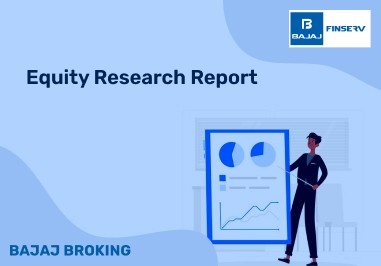What is an NFO?
A New Fund Offer (NFO) is when an asset management company (AMC) introduces a new mutual fund to investors. During the limited subscription window, usually 10-15 days, investors can buy units at a fixed price, generally ₹10 per unit. Once the NFO period ends, the fund gets listed, and its value moves based on its Net Asset Value (NAV). Investing in NFOs allows investors to enter at the fund's launch stage, potentially benefiting from its growth over time, making them appealing for those aiming for long-term gains.
Understanding New Fund Offer Meaning in Detail
A New Fund Offer (NFO) is an essential mechanism for asset management companies to introduce a mutual fund scheme to the public. Essentially, the NFO meaning relates to the initial phase where investors are invited to purchase units of the fund before it becomes available for trading on secondary markets. Typically, the units are offered at a fixed price, often set at ₹10 each, making them accessible to a broader range of investors. During this period, detailed information regarding the fund's investment strategy, portfolio composition, and the credentials of the fund manager is disclosed to potential investors. As stipulated by SEBI regulations, an NFO can remain open for a maximum of 30 days. Once this period concludes, the fund is priced based on its Net Asset Value (NAV), which fluctuates according to the performance of the underlying assets. Thus, understanding the new fund offer meaning is pivotal for investors, as it provides insight into the prospective growth and risk associated with NFO mutual funds.
Benefits of Investing in a New Fund Offer (NFO) in Mutual Funds
Investing in a New Fund Offer (NFO) presents several advantages for various investor profiles:
Possibility of Lower Expense Ratios: NFO mutual funds often have lower fees during their initial launch, enhancing net returns and allowing investors to retain a larger portion of their profits.
Access to Unique Strategies or Themes: Many NFOs target specific sectors or innovative strategies not available in existing funds. This offers investors fresh opportunities for diversification aligned with market trends.
Opportunity for Early Entry: Investing in an NFO provides the chance to enter a mutual fund at its inception, much like an Initial Public Offering (IPO) in the stock market. Early investors can purchase units at the initial price, typically ₹10 per unit, benefitting from long-term capital appreciation as the fund grows.
Potential for Higher Returns: With a specific investment focus, NFOs can yield higher returns by targeting high-growth sectors. If the underlying assets perform well, investors may enjoy substantial capital gains as the fund matures.
Overall, understanding NFO meaning and the new fund offer meaning can help investors make informed decisions in the mutual funds landscape, especially when using a trading platform.
Advantages of Investing in New Fund Offers (NFOs)
Investing in New Fund Offers (NFOs) can be an attractive option for various investors. Here are some key advantages to consider:
Lower Entry Cost: With a fixed launch price of ₹10 per unit, NFO mutual funds are accessible for small investors, making it easier to start investing.
Expert Fund Management: Many NFOs are managed by experienced fund managers who bring their expertise to the table. This professional oversight enhances investor confidence in the fund's performance.
Diversification Opportunities: NFOs provide a unique chance to invest in innovative strategies and themes not typically available in existing open-ended funds. This diversification can help spread risk and capture new growth areas.
Lock-in Period: Several NFOs come with a defined investment period, encouraging investors to commit their funds for a specific time. This can help improve returns by minimising impulsive decisions and fostering a long-term investment approach.
Understanding the NFO meaning and the new fund offer meaning can empower investors to navigate the mutual funds landscape more effectively, especially when using a trading platform.
Disadvantages of Investing in New Fund Offers (NFOs)
While New Fund Offers (NFOs) present various opportunities, they also come with certain disadvantages that investors should be aware of:
Lack of Historical Data: As new products, NFOs lack a performance track record, making it difficult for investors to evaluate their potential success compared to established funds.
Limited Early Investment Benefits: Unlike Initial Public Offerings (IPOs), the NAV of mutual funds does not fluctuate daily. This can limit the immediate benefits for investors hoping for rapid price increases.
Lower Liquidity: NFOs may experience lower liquidity due to a smaller number of investors participating in the fund. This can complicate exit strategies and make it harder to sell units when desired.
Expense Ratio Concerns: Some NFO mutual funds may have higher initial expense ratios, which could impact overall returns. Higher costs can erode profits over time, making it essential to consider fees when investing.
Understanding these NFO meaning nuances and the new fund offer meaning is crucial for investors aiming to make informed decisions in the mutual funds space.
Types of New Fund Offer (NFOs) in Mutual Funds
New Fund Offers (NFOs) are primarily classified into two main categories: open-ended and close-ended. Understanding these types helps investors align their choices with their financial goals.
Open-ended NFOs
Open-ended NFOs offer flexibility by allowing investors to buy or sell units at any time based on the prevailing NAV. This structure is ideal for those seeking liquidity, as it enables dynamic investment management. Investors can access their capital quickly, making open-ended NFOs suitable for individuals who require immediate funds or wish to adjust their investments frequently.
Close-ended NFOs
Close-ended NFOs issue a fixed number of units with a predetermined maturity date, generally ranging from three to five years. This format allows fund managers to implement focused investment strategies without the pressure of daily redemption requests. However, investors can only buy or sell units on a trading platform after the NFO period, making these suitable for individuals preferring a long-term investment perspective.
Understanding the new fund offer meaning and the implications of each type is essential for investors exploring NFO mutual funds within the mutual funds landscape.
How to Invest in a New Fund Offer (NFOs) in Mutual Funds
Investing in a New Fund Offer (NFO) in mutual funds is a straightforward process that can yield significant benefits. First, it’s essential to understand what is NFO and its implications. The NFO meaning refers to the initial launch of a mutual fund, providing investors with a chance to enter at the ground level. Before investing, prospective investors should conduct thorough research on the fund's objectives, strategies, and expected performance.
Once confident, individuals can approach Bajaj Broking to initiate the investment. The application process can typically be completed online through a trading platform or in person, depending on personal preference. After submitting the required documentation and the investment amount, the NFO will process the application.
Upon the closure of the NFO period, units will be allotted to investors, and the fund will transition to the trading stage. At this point, the NAV will dictate market transactions, allowing investors to buy or sell units based on market performance. Overall, investing in NFO mutual funds can be an effective way to diversify and potentially enhance one’s investment portfolio.
Why NFO in Mutual Funds is Relevant to the Investor?
Investing in a New Fund Offer (NFO) is especially relevant for investors seeking fresh opportunities to enhance their portfolios. NFOs can introduce unique investment strategies and allow entry at an initial price, serving as valuable additions to an investment strategy.
As market conditions evolve, NFOs often target specific sectors or themes that align with current economic trends, making them attractive options for diversification. This relevance is heightened as investors look for ways to capitalise on emerging sectors or innovative investment approaches that traditional mutual funds may not provide.
Furthermore, staying informed about upcoming NFOs and their objectives is crucial for investors aiming to seize potential growth opportunities. By engaging with NFOs, investors can position themselves advantageously in the market, taking advantage of strategies tailored to current trends that can enhance their overall investment portfolio. Thus, understanding the new fund offer meaning and relevance can empower investors in their journey towards maximising returns in the dynamic world of mutual funds.














